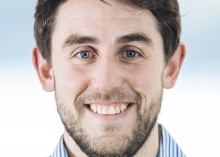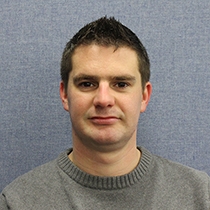
Teaching | Research | Our staff | Take part in our research studies | Explore our Faculty | Contact us | Newsletters
The School of Psychology, Sport, and Health Sciences is committed to advancing education, research, and practice across diverse disciplines. We delve into the intricate workings of psychology, health, physiology, sport science, and sport performance while also focusing on the development and management of sport and the significance it has in society.
By exploring expertise from various disciplines, we offer a holistic approach to understanding and improving health, well-being, and human performance. We aim to equip our students with the knowledge, skills, and experience necessary to succeed in their chosen careers and make a positive impact on society – whether they are aspiring to become Chartered Psychologists, sporting experts, healthcare professionals, or educators.
We also hold an Athena SWAN bronze award for our commitment to gender and social equality in the workplace.
Teaching
We offer a wide range of professionally accredited and research-informed psychology and sport science courses. Both our undergraduate and postgraduate degree pathways reflect the thematic strengths of the school, providing an educational platform that bridges the gap between science and application while providing excellent student support that creates a pleasant and helpful environment.
Our psychology courses pay particular attention to supporting students outside of lectures so they get the best out of our degrees and kick-start their careers as a psychologist. Students regularly meet their tutors and access one-on-one supervision while they work on their chosen psychological research project as they explore the intricacies of how psychology works.
Our sport science courses offer experience in the field of applied health and exercise science, sport management and collaborative research in the commercial industry and the international community, creating a diverse and comprehensive educational experience.
Our teaching areas
Sport science courses

Sport and Exercise Science short courses
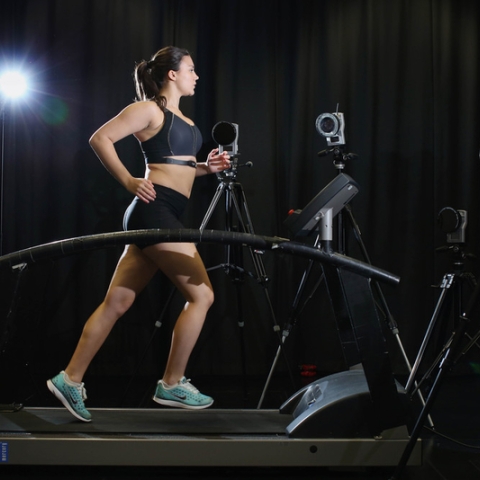
Psychology courses

Research
Our work extends into various domains within psychology and sport and exercise science – from improving water safety and enhancing athlete performance in extreme conditions to predicting high-risk offenders and developing tools to empower adults on the autism spectrum in their pursuit of employment.
In our submission to the Research Excellence Framework 2021 (REF 2021), our research achieved notable recognition
Within Sport and Exercise Sciences, Leisure and Tourism, 95% of our overall research quality was rated as world-leading or internationally excellent in terms of originality, significance and rigour (REF 2021) and 100% of our research impact case studies were rated as outstanding in terms of their reach and significance.
Within Psychology, Psychiatry and Neuroscience, 70% of our overall research quality was rated as world-leading or internationally excellent in terms of originality, significance and rigour (REF 2021) and 100% of our research impact case studies were rated as outstanding or very considerable in terms of their reach and significance
Partnerships and funding
Our research has also received funding from many prestigious organisations, including charities, governing bodies, health groups, industry, defence and research funding bodies. Some of these include:
- Economic and Social Research Council
- Leverhulme Trust
- Federal Bureau of Investigation
- British Academy
- British Psychological Society
Our areas of expertise
Uncover the research we do within our area of expertise.

Culture, Behaviour, Inclusivity and Governance
We investigate innovative social science methodologies, laboratory techniques, and longitudinal interventions that provide insights towards performance enhancement and psychosocial development through sport.
Our research groups
Take a closer look at the work we're doing across our research groups in various disciplines.
Extreme Environments & Occupational Performance Research Group
Extreme Environments & Occupational Performance Research Group investigates the physiological and psychological responses to adverse environments (e.g. heat, cold, and hypoxia) and the preparation and protection of those who enter such environments.
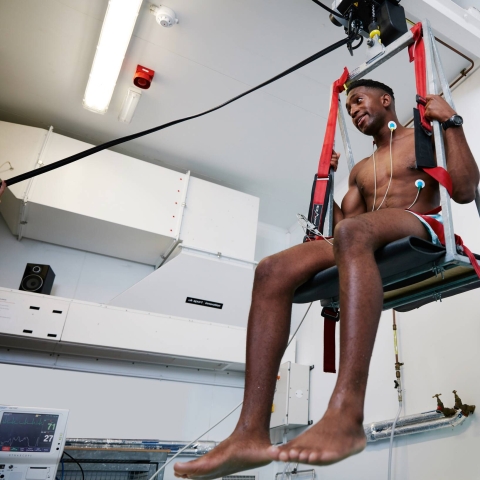
Physical Activity, Health and Rehabilitation Group
We’re conducting research focused on promoting physical activity, rehabilitating individuals facing barriers to activity, and understanding and measuring determinants of health and wellbeing in various contexts.

Quality of Life Health and Wellbeing Research Group
We explore life experiences. Our research includes empowering people with learning disabilities, exploring wellbeing, enhancing life in later years, and more. Read more.
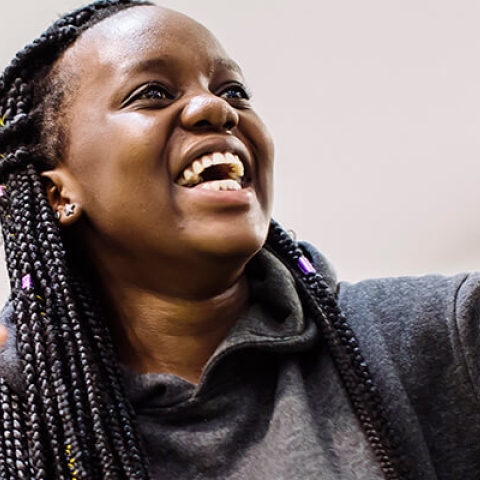
Our research centres
Explore the work we're doing across our research centres.
Centre for Comparative and Evolutionary Psychology
In the Centre for Comparative and Evolutionary Psychology, we're exploring evolutionary processes and comparing humans with other animals, to study the origins of behaviour.

International Centre for Research in Forensic Psychology
The ICRFP has an established international reputation for conducting a broad range of criminological and forensic psychology research.

Centre for interaction, development and diversity
In the Centre for Interaction, Development and Diversity, we study psychological phenomena in relation to the contexts and situations in which they emerge.

Dog Cognition Centre
In the Dog Cognition Centre, we're exploring the behaviour and cognitive processes of man's best friend – and studying everything from human-dog communication, to facial expressions in dogs.

Our research projects
-
Enhancing employers’ ability to provide person-centred support for autistic people
Our team at the Autism Centre for Research on Employment (ACRE) has developed an innovative approach to autism employment support that focuses on supporting employers, not just autistic employees, including a suite of freely available Profiling Assessment (PA©) tools.
-
Transforming lie detection in security, military and forensic and settings
Our researchers have pioneered Cognitive Credibility Assessment (CCA) - an ethical, information-gathering, lie detection procedure that capitalises on differences in the cognitive processing and strategies that truth tellers and liars use.
-
Changing policy and practice for securing evidence and gathering intelligence
Our researchers developed the Self-Administered Interview and Timeline Technique as investigative tools to elicit comprehensive memory accounts from witnesses, victims, and informants. These tools have been adopted into policy in the UK, US and Europe, leading to improved practice and training in police forces and national security agencies.
-
The discovery and protection of a new orangutan species
Our research on orangutan long calls has contributed to the first discovery of a new living ape species in nearly a century, the Tapanuli orangutan. With fewer than 800 individuals, it is the most endangered great ape species in the world. The team has also co-developed methods to assess the survival potential of rehabilitant orangutans with conservation and government organisations in Malaysia.
-
Researchers in the School of Psychology, Sport and Health Sciences are studying macaque cognition and behaviour.
Facilities
Our outstanding educational, research and innovation activities are supported by our laboratories – such as the Extreme Environments Laboratory and Psychophysiology Laboratory. Our unique facilities and specialist equipment also support this, including eye tracking technology, thermal cameras, sport and human performance testing unit, and sport bra testing unit.
Our staff
Explore our faculty
Explore the other Schools and Departments that make up our Faculty of Science and Health.
School of the Environment and Life Sciences
In the School of the Environment and Life Sciences, we're addressing the most pressing issues impacting people's quality of life around the world.

School of Dental, Health and Care Professions
Discover the School of Dental, Health and Care Professions' commitment to the health and care sector through innovative teaching and research activities.

School of Medicine, Pharmacy and Biomedical Sciences
Through our teaching and research, the School of Medicine, Pharmacy and Biomedical Sciences strives to find new ways to help those with debilitating illnesses and diseases.

Faculty of Science and Health
Explore the Faculty of Science and Health at the University of Portsmouth, and learn more about the teaching and research activities that take place within the Faculty's different departments and schools.

Contact us
To get in touch, please contact our Admissions office.
Take part in our research studies
We're always looking for volunteers to join our research study programmes.
If you're an adult interested in registering for a research study, please fill in the following form.
If you're interested in registering a child for a research study, please fill in the following form.
Newsletters
Stay up to date with the latest news from the School of Psychology, Sport and Health Sciences by reading our newsletters Pulse and Mind & Movement.


